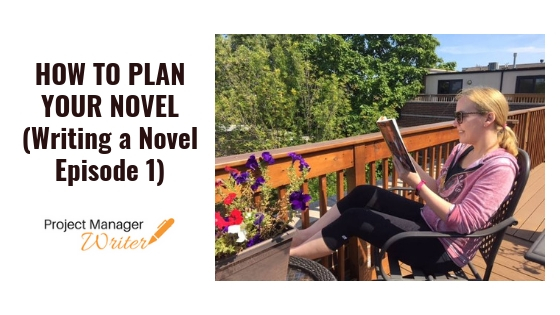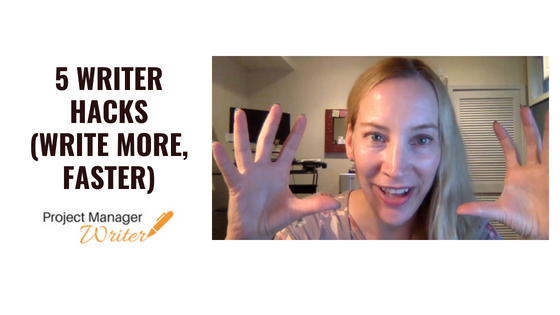Do writers go through cyclical patterns when it comes to productivity?
I found myself asking this question recently because I was going through a period where I wasn’t writing. In the past, my morning routine was to write at least 1,000 words, but it wasn’t happening due to a busy work schedule and other distractions.
Like a vicious circle, lack of writing exacerbated the general stress and anxiety about being unproductive. “Oh no, I’m falling behind on my writing goals for the year,” I thought.
I had set an ambitious goal for 2017 to write 365K words (1,000 words a day). Worried, anxious me determined that my experiment was a failure.
The truth is we’re going to set goals; we’re going to miss them. We’re human.
How can we turn our missed writing goals into a learning opportunity? How could I grow from my failure and do better next time, and what advice could I offer other writers?
If writing performance is cyclical, how can we use it to our advantage like a superpower?
If you’re a steady, methodical writer that sits down and cranks out words every day, congratulations. I’m rather jealous.
But, if you’re like me and some days you’re on fire with your writing, while other days you struggle, I offer up these tactics for harnessing your cyclical writing style.
1. Track your word count, so you understand when you’re most productive.
If you haven’t been doing this yet, you’ll need to start, so you have a baseline for what you consider productive. Set a monthly word count goal. Start small (500 words a day) rather than setting a crazy, ambitious number.
Set up a Google sheet or note the daily word counts on your calendar. Make it simple and something that becomes automatic. Here’s a free word count tracker that you can use.
If you have already been tracking your word count for some time, ask yourself these questions:
–>What was your best writing month? Your worst?
–>How do the seasons affect your writing?
–>What work-related or personal events took place that may have impacted your writing productivity?
Look for trends. For example, I started strong in January and February. I averaged 942 and 887 words per day, respectively.

My word count since I started tracking in Oct. 2016
In March and April, my writing declined because I was busy with a client’s book launch. May was an awesome writing month—I averaged 1024 words a day.
August and September have been my worst months. I took on multiple book launch projects which left me with less time to write. Now, one of my projects is winding down, and I hope to return to my morning routine of writing 1,000 words.
There may also have been a seasonal factor in my writing slump. The summer months in Chicago are ideal and fleeting. I made an extra effort to get outside and walk often. In addition to my busy book launch business, we also had more social events on weekends.
2. Experiment.
Once you have analyzed your writing performance and identified trends, it’s time to test your theories. How far you go depends on your goals.
If you want to crank up your author career and pump out a book a month, you’re going to need to find creative ways to manage your slumps.
Maybe, like me, you just want to get into a more consistent routine. I am comfortable at a slower writing pace but want to get more predictable and avoid such extreme cyclical patterns.
The answer is to experiment and try new things. Sometimes our brains need a reset!
Questions to consider and test:
-
Do you write better in the morning or evening? If you don’t write in the evenings, why not try it for a week?

Copyright: nesharm / 123RF Stock Photo
-
Should you get up earlier to write? Have you tried it?
-
What can you give up to write more (e.g., TV, social media)?
-
Are you more productive on weekends? How are you using your weekends?
-
Is there a day of the week, you can take “off” to write? For example, maybe you could go to the office a few hours late on Fridays and use the time for a writing sprint. I’m trying an experiment where I am unavailable for clients on Friday mornings.
-
What environment is most conducive to writing? This is probably one of the easiest things to tweak. Try going to a cafe to write. Or even just another room in your house away from where you usually sit down to do work. It may give your brain a creative boost.
-
What is the impact of exercise on your writing? Try taking a walk before you sit down to write. Studies have shown walking outside can help with creativity.








Leave A Comment